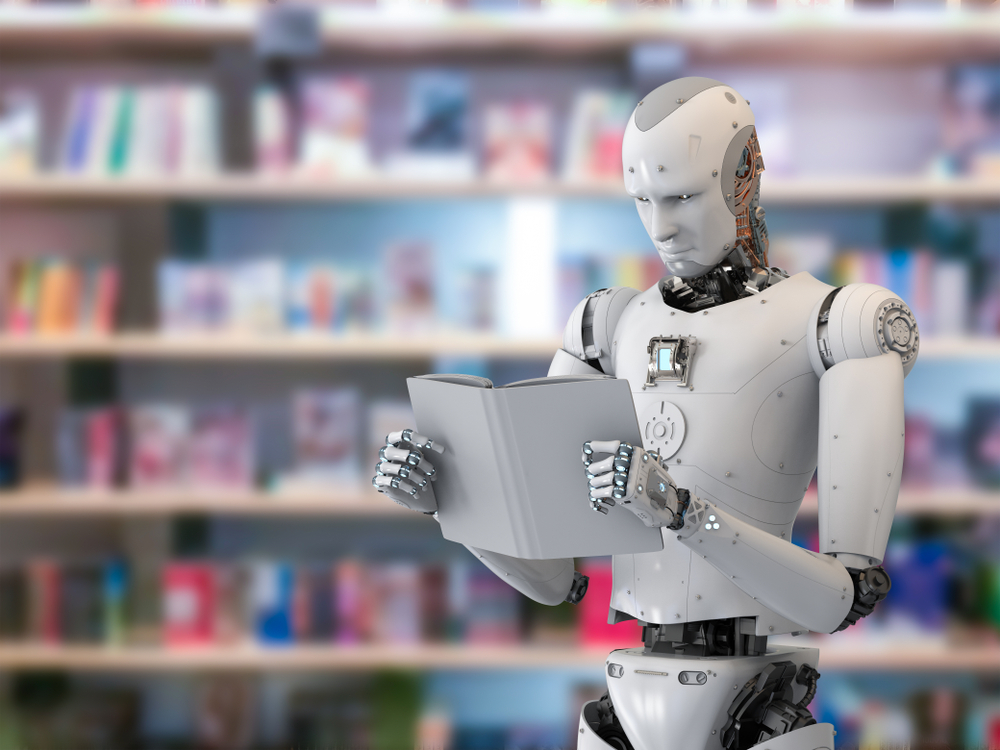How AI and human-centred design are transforming the workplace: An interview with LiveTiles CEO, Karl Redenbach.
Karl Redenbach believes that these are fascinating times to work in technology. As the CEO and co-founder of LiveTiles, a New York-based software company that provides B2B intelligent intranet and artificial intelligence (AI) solutions, Karl is envisioning a workplace that will be innovative as well as humane. “We are definitely trying to change the way we work and live together,” he says. During his stay in Dublin recently, Karl talked to ThinkBusiness about the ongoing “intelligent revolution”, the future of work, and how humanising technology will lead to more engaged and satisfied employees.
From start-up to hyper-growth

Founded in 2014 by Karl and Peter Nguyen-Brown, LiveTiles is a Microsoft enablement partner with offices worldwide, including Sligo, Ireland. Once an Australian start-up, the company’s client list is lengthy and diverse – PepsiCo, Nike, NBH Bank, the UK Ministry of Defence, and the Government of South Australia, are a few of its high-profile customers. “LiveTiles was really born out of the fact that we wanted to make it easy for companies to create portals, dashboards and corporate intranets using engaging experiences and to integrate all their systems and applications into one screen,” explains Karl.
“Cloud has made systems in companies more confusing because there are so many applications that employees use. So, ultimately, we are about employee experience and making workers happier, which is the ethos of LiveTiles”. The company’s AI and analytics-powered tools have proved particularly successful – LiveTiles has recorded year-on-year growth of 167%, and it aims to organically grow ARR to at least $100 million by 30 June 2021. “What we are doing here in Ireland, and certainly what we are doing around the world, is all about how to keep that hyper-growth going and continue to do amazing things for our customers and our colleagues,” says Karl.
How can AI improve workplace wellbeing? “Right now, there’s a very large information and manufacturing employee base, that is doing very basic, mundane, repetitive tasks. Even though these tasks are important and must be done from a productivity perspective, they are not innovative or useful to an organisation and arguably the world. What we are doing for our customers is that we use AI to automate and simplify those mundane and repetitive tasks so people can do much more higher-value, innovative-thinking work,” explains Karl.
“Cloud has made systems in companies more confusing because there are so many applications that employees use”
“Mobile devices are fantastic in that they allow us to work from anywhere, but their negative side is that people tend to look at their emails before they go to bed or when they try to have dinner with their families. While I am one of the worst examples of all this, I do think that AI can play an important role in taking a lot of this burden off people. We don’t have to be on call 24/7, that can be done through automation.”
AI is the future of work
Karl says that “companies have been using the word digital transformation a lot”, but for LiveTiles “this is an old-school term.” Instead, “we are heading into this intelligent revolution space where people, and businesses, in particular, are going to change the way they work. Whether you like it or not, there are going to be algorithms and bots and AI solutions in your organisation. They are going to completely change the way you work, and if you’re not prepared to embrace that change, if you’re not considering it, you may not be around in ten or twenty years as a business.”
However, and contrary to popular belief about how AI and automation will inevitably lead to the demise of millions of jobs, Karl is a self-declared optimist. “As we have seen in history when new technologies come in since the Industrial Revolution, there has always been a shift in what jobs are there. There will be a huge shift in jobs, I have no doubt about it, but there will be jobs for everyone. I don’t think it will be the worst-case scenario which people are talking about.”
After all, as Karl puts it: “Humans are in charge of this process.”
“Mobile devices are fantastic in that they allow us to work from anywhere, but their negative side is that people tend to look at their emails before they go to bed or when they try to have dinner with their families”
People first
What is particularly striking about LiveTiles is that it puts people at the core of its operations – not what one would expect from a company that talks about the advent of the “intelligent revolution” in the workplace. Along with Microsoft, LiveTiles has been involved in what is known as design thinking – a user-centred design methodology for innovation through human collaboration and creative problem-solving. “In schools, they don’t teach you how to think innovatively. How to creatively work together as a team. How to drive innovation will be one of the most important assets and skills that any employee can have in the future,” says Karl.
By providing no-code solutions, LiveTiles enables businesses to design user-optimised portals which are based on “drag-and-drop” functionality and can be enhanced with AI such as LiveTiles chatbots. The company designs compelling user experiences that maximise productivity across the board. “Interestingly enough, when we do this with customers, we don’t use any technology. The only technologies we use are post-it notes, pens, sometimes paper and great lead pencils. And we design experiences. We design new forms of interfaces or workflows, and we do it without the technology. We do it with humans, by talking to humans, and we think that’s a great way to facilitate innovation and better productivity for businesses.” This process, according to Karl, results in happier workers “who are not stuck at their desktops in a cubicle for the next 20 years at their computer screen clicking on different things, doing different things.”
“There will be a huge shift in jobs, I have no doubt about it, but there will be jobs for everyone”
This human-centred approach means that AI is not the only change that companies should factor in when considering their roadmap. “Anyone who is adopting AI as a strategy needs to think about the ethics of it. First, is this the right thing for the workers and how do we articulate that to them? Secondly, is that actually good for the customers? Thirdly, is it good for the greater society?” Companies that wish to attract and retain the best talent out there should cease being driven solely by shareholder value. “Some of the most successful companies in the world right now want to make sure that their employees are well-looked-after, that they create the right culture, and that ultimately creates a great customer experience and long-term customers. So, I think a lot of the traditional, hierarchical sort of corporate-driven approach is going to change. Technology is driving this change. I think millennials are demanding it.”
It does not stop there. “By 2026, we are expecting to see more women involved in the workplace than ever before. What has traditionally been seen, over the last seventy years, are pretty much male-dominated hierarchies and management of businesses. I think that is going to change as well, and we are going to see more women involved than ever. So again, this requires more flexible thinking and more flexible work arrangements to gain a competitive advantage. Also, you cannot have just a certain type – the 22-year-old male – of demographic developing your algorithms and the biases that are associated with it. We need much more inclusive and diverse builders of algorithms.”
“I think this is a great opportunity, especially if you’re a small to medium-sized business”
AI is a massive opportunity for SMEs
For Karl, the broad adoption of AI should not scare entrepreneurs away. “People see the train coming, but they’re sort of running away or lying down on the train tracks waiting for the steam train to roll over them. I think this is a great opportunity, especially if you’re a small to medium-sized business. Look at what’s coming and don’t lie down and watch it go past or worse, be under the train as it goes over you. Jump on that train and help steer it, not just for your benefit but for the benefit of everyone.”
Karl believes that for larger businesses, it may be harder to turn around and change their ways than it is for smaller ones. “There are some historically good examples like Kodak that knew the innovation was there, they could see it, but just couldn’t quite change their business model fast enough. We’re going to see a lot of these agile SME-type businesses that see those opportunities and take advantage of them. The big companies might see them too but can’t turn the ship around fast enough to adopt them. So, I think this is a huge opportunity for any SME business in any segment of any market to take advantage of that opportunity.”
LiveTiles will be a sponsor of the upcoming Gartner Digital Workplace Summit in London in September, the leading forum for how tech is impacting the future of work.
Interview by Irene Psychari
Published: 20 August, 2019






